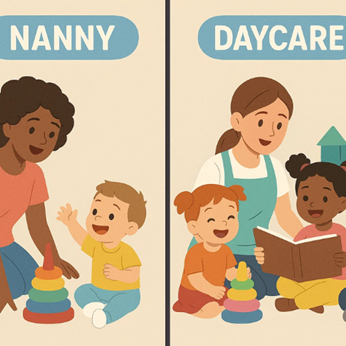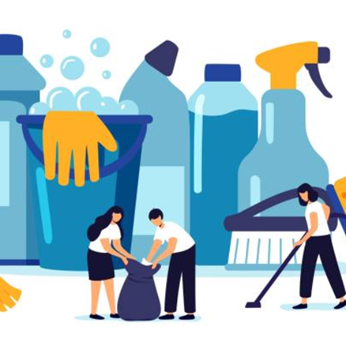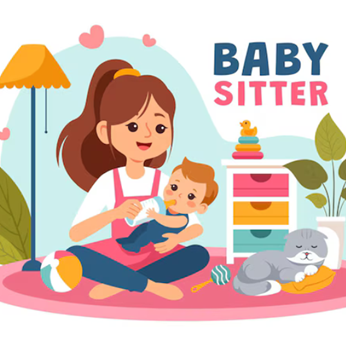Know About Some Children With Special Needs
Looking after children with special needs can be difficult even for the most experienced babysitters. It would be good to understand about 2 most common special needs children namely, autism and Down syndrome
Autism:
It is a developmental disorder where a child has difficulty in communicating and interacting with others; he/she also has difficulty in understanding subtle directions and requests and may get overwhelmed in busy and noisy environments and when touched. Each kid with autism is different and only their parents can guide you regarding what they enjoy.
You need to know some things:
• Kids with autism like structure, so it is best to follow the child’s routine especially at bedtime and mealtimes.
• These children have their own favorite toys; you could mimic their play initially to then get his attention to join.
• You could encourage these children to cooperate with you by offering special toys.
• It is a part of the disorder if a child decides to play alone and not with you.
• Maintain a calm environment and avoid bringing in friends and other people the child may not know. Also avoid gatherings in the neighborhood.
• Be slow as far as physical contact like affection, hug or a light tickle goes; it could set off a child with autism.
• Consult the parents of such children regarding how to deal when the child is upset or agitated. Make sure the child is safe and close to you; distract the child with a favorite toy or favorite stuffed animal or sitting in a rocking chair or swinging on the backyard swing set.
Down syndrome:
It refers to a condition where extra genetic material causes delays both mentally and physically in the way a child develops; though they may play with the same type of toys as children of their age, their skills are behind and you have to adapt to play at their level of understanding.

You need to know some things:
• Know what the child with this syndrome love to play; most babies love to play with brightly colored toys and toys that make noise, toddlers may like to play pretend and work on building blocks, while school going children may like playing games, crafting and playing outside.
• These children have a lower muscle tone that makes it difficult for them to move quickly and maintain coordination. These kids are still strong and physical and playing outside provides them a good way to exercise their muscles.
• These babies have weak neck muscles that make it essential to support their necks carefully while holding them.
• They experience difficulty in picking up small objects; be patient as the child tries again.
• Keep rules and directions simple as children with this syndrome find it difficult to follow directions.
• You have to help and encourage this child to learn new things; it would help while stacking blocks to hold the blocks on the bottom, while he/she adds more to the top.
• Children with this syndrome might have trouble speaking; know from their parents whether he/she uses pictures or sign language to communicate. These kids need careful listening.
• To keep consistent and deal with difficulties, it would help to ask parents about family rules and stick to it.
Image Courtesy: Google
Take the next step toward your goals
Share your requirement and find the best care providers in your area
-
Looking for a caretaker’s job? Build your profile and get in touch with families in your vicinity.
-
Discover nannies, babysitters, cooks, housekeepers, pet sitters, and elder care under one roof.
-
Get all the support you need to run a successful care center.
-
Search for appropriate centers near you depending on your needs.
Care Corner Insights: Blog Library

Nanny vs. Daycare in Naperville, IL: What Works Best for Indian Working Couples?
Hey Naperville Parents! Balancing work and family life is no small feat—especially for Indian working couples trying to juggle careers, household responsibilities, and parenting. One of the biggest decisions you’ll face? Choosing between a nanny or

Housekeepers in Sugar Land, TX: Deep-Cleaning Checklists for Indian Homes
Housekeepers in Sugar Land, TX: Deep-Cleaning Checklists for Indian Homes Indian cooking = flavor + spices + love… but also oil splatters and stubborn stains. Time to reset! Degrease stovetops, chimneys, and exhaust fans. Scrub countertops, tiles,

12 Easy After-School Snack Ideas for Kids Who Get Hungry Quickly
School’s out, and the hunger hits hard! If your little ones come home ravenous and ready to raid the kitchen, you’re not alone. After-school snack time is prime time for refueling, recharging, and maybe even sneaking in a little nutrition. So here ar

Vegetarian Home Cook Services in Sunnyvale, CA: North & South Indian Meal Prep for Busy NRIs
Between work, family, and daily responsibilities, finding time to cook fresh meals can be difficult. That’s when a vegetarian home cook service in Sunnyvale makes life easier—bringing authentic North and South Indian dishes straight to your table. T

Hiring a Live-In Nanny in Plano, TX: A Practical Guide for NRI Households
For NRI families living in Plano, TX, raising children while managing work and household responsibilities can feel overwhelming. Many parents find that hiring a live-in nanny provides the right balance of support, convenience, and cultural comfort. U

Daycares in Fremont, CA for Indian Toddlers: Curriculum, Food Policies & Waitlists
You’ve probably met them — the parents at the park chatting about Montessori vs. play-based learning while handing their toddler a homemade paratha. The ones who ask every daycare in Fremont if they serve vegetarian meals. And yes, the ones who have

Babysitters in Jersey City, NJ for NRI Parents: Last-Minute, Weekend & Evening Options
You’ve probably seen them — the parents juggling grocery bags in one hand and a phone call to grandma in India in the other, while trying to keep their toddler from running into the road. The ones who cancel dinner plans because the babysitter bailed

Best Nanny Services in Edison, NJ for Indian Families: Costs, Language, and Cultural Fit
Edison, NJ, is home to one of the largest Indian communities in the U.S., and finding a nanny here often means looking for more than just childcare skills. For Indian families, cultural understanding, language fluency, and traditional values play a b

What Is Helicopter Parenting? How It Affects Children and Ways to Avoid It
You’ve probably seen them. The parents at the playground who shadow every move, wiping invisible germs off the slide before their child touches it. The ones who fill out job applications for their teens. And yes, the ones who email college professors

Are Weighted Blankets Safe for Children? Pros and Cons Explained
Weighted blankets have become a cozy trend in recent years. From helping adults sleep better to calming anxiety, they’ve earned a spot in many households. But when it comes to kids, especially the little ones, parents often ask: Are weighted blankets